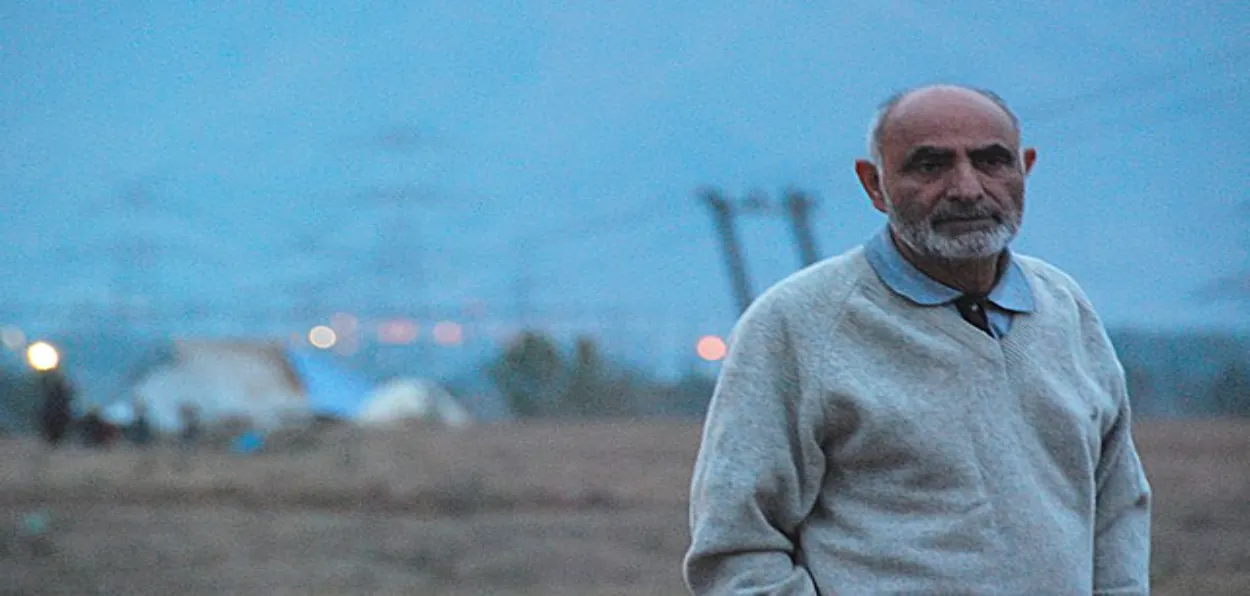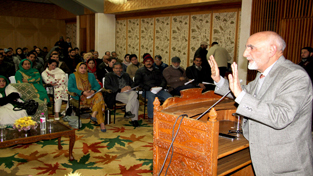
When President APJ Abdul Kalam visited Hyderabad, he wanted to “feel like a Judge” and expressed his desire to sit in the chair of the Justice Bilal Nazki of the Andhra pradesh High Court.
Accompanied by the Governor and Chief Minister on his visit to the High Court, the President of India sought the permission of Chief Justice Justice Bilal Nazki. Nazki remembers the moment. “This is a unique experience…..I have argued for 25 years (as a Lawyer) in the courts and here I am in front of the President of India,” he told the President.
The President said, “Do you want my judgment?”
Kalam uttered “God bless” and he also wrote it on a piece of paper.
Weeks later Justice Nazki received two framed photographs in which he was posing with the President of India at the High Court from Rashtrapati Bhawan.
"It was a moment of great pleasure," recalls Bilal Nazki, who served at the High Court from 1997 to 2007, twice as Acting Chief Justice of the High Court of Andhra Pradesh.
Justice (Retd) Bilal Nazki with President APJ Abdul Kalam
Hailing from Srinagar, Bilal Nazki had served as a Judge of the J&K High Court for two years. From Andhra Pradesh, he moved to Bombay High Court in January 2008 and then became Chief Justice of Orissa High Court, where he retired in 2009.
He held the position of Chairman, of the Human Rights Commission of Bihar from 2014 to 2016, and later as Chairman J&K State Human Rights Commission from 2016 to 2019.
“Our judicial system is one of the best evolved by the efforts of the people. It is not always that judges can do ultimate justice. They are adjudicating disputes which may or may not give justice”, Justice (Rtd) Bilal Nazki told Awaz-The Voice at his Rawalpora residence in Srinagar. He said that judges in a vast country like India normally deal with routine cases and they “try to finish the workload” of clearing a huge lot of pending cases at different levels and in different courts.
Justice (Rtd) Bilal Nazki referred to a case of Minority Reservation of Muslims that came up in his court in Andhra Pradesh. The five-judge bench of the High Court observed that “Muslim reservation can be made, provided the Government can show that sections of Muslims are educationally and socially backward”.
He said the Government didn’t have any material in support of its move.
He spoke about another case in which the 15 percent reservations for Scheduled Castes (SCs) had been divided into four subcategories was challenges. While he observed that it was “Constitutionally invalid”, four other judges disagreed. The case went to the Supreme Court of India where a four-member bench upheld his contention.
He also recalled a curious case of a father challenging the custody of his child to his mother following their separation. The father pleaded before the Court that his son should be allowed to live with him for two weeks of school vacation. “The Court granted permission and after a week, the father wrote a letter to the judge declaring that he had taken custody of his child”.
However, the child’s mother later approached the court pleading to get her child back. “The case came to my bench. I told the pleading mother that this is a big country and it is not easy to find your child. The High Court has failed to give you the child back. Go to a temple and pray for the return of your child, Justice (Retd) Nazki recalled.
However, the DG Police came to the court and assured the court that he will trace the child within 15 days. Within 10 days police had traced the child to Nepal where the father had taken him and was returned to his mother, he added.
In his practice as a lawyer before becoming a judge, Justice Nazki said it was easy for those from the families of lawyers and relatively difficult for others.
He said that a good number of Muslims in the legal profession migrated to Pakistan at the time of Partition. So there were fewer Muslims in the legal profession left, but many more have joined the profession over the decades. “Now we have many such families” in the legal profession.
 Justice (retd) Bilal Nazki addressing a public function
Justice (retd) Bilal Nazki addressing a public function
]Nazki did not come from a family of lawyers. He was one of the eight children of the renowned Kashmiri poet, broadcaster, and writer, Ghulam Rasool Nazki, a recipient of the Sahitya Akademi Award in 1987.
Born in 1947 in Bandipore, his family shifted to Srinagar the same year. He received his early education at the then Middle School in Aragam while staying with his sister and brother-in-law at Garoora. He graduated from Sri Pratap College, Srinagar.
It was on the advice of a senior Lawyer of the J&K High Court, Mirza Mohammad Afzal Beigh, a close associate of Sheikh Mohammad Abdullah, who also became Dy Chief Minister in the Sheikh’s government in 1975, that Bilal Nazki got admission to Law Department at the Aligarh Muslim University. He joined the practice at the J&K High Court in the mid-1970s.
ALSO READ: Modern day women scholars have enriched Islam
With over a decade of practice in the State High Court, Nazki was appointed Deputy Advocate General in 1986, with Muzaffar Hussain Beg as the Advocate General, “who shaped my career”, he said.
Nazki’s son has already joined the legal profession and is practicing in the Supreme Court of India.
